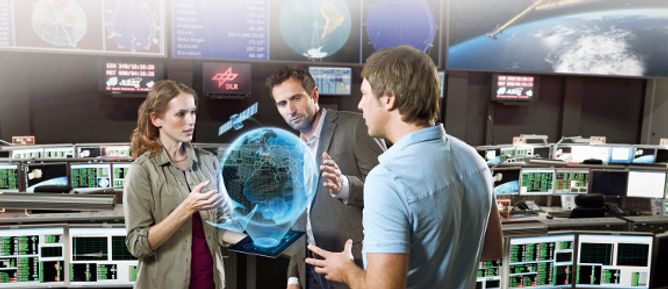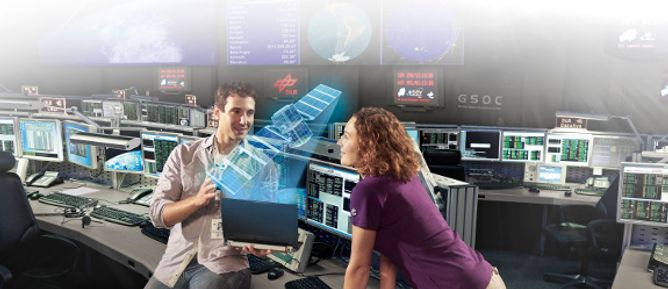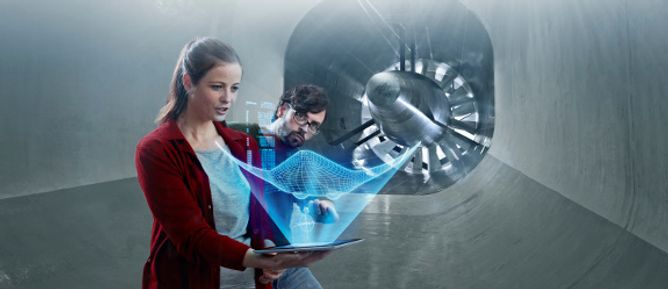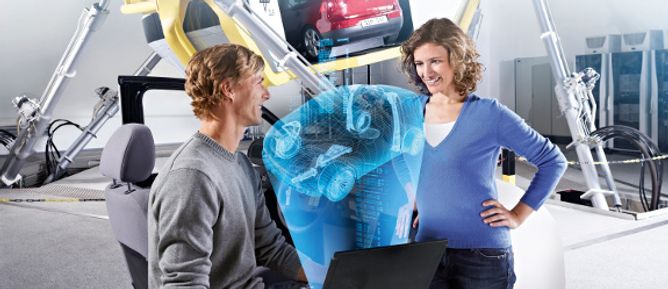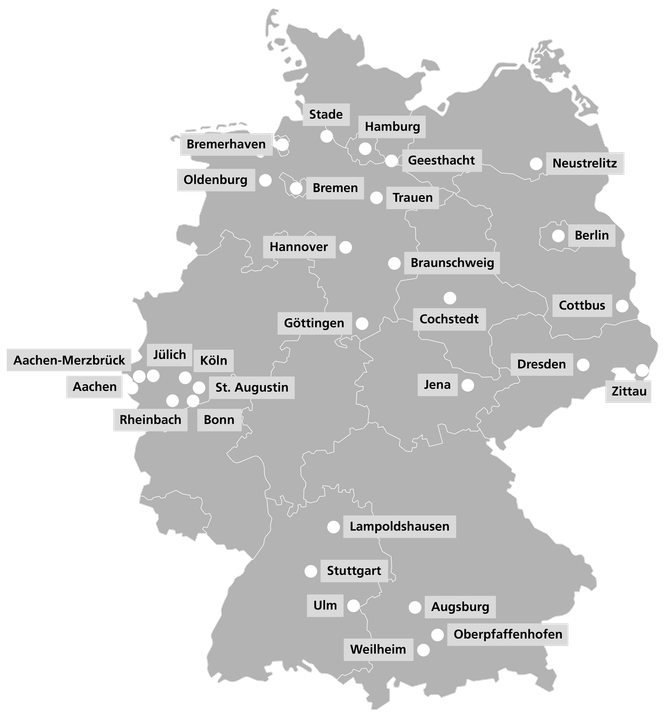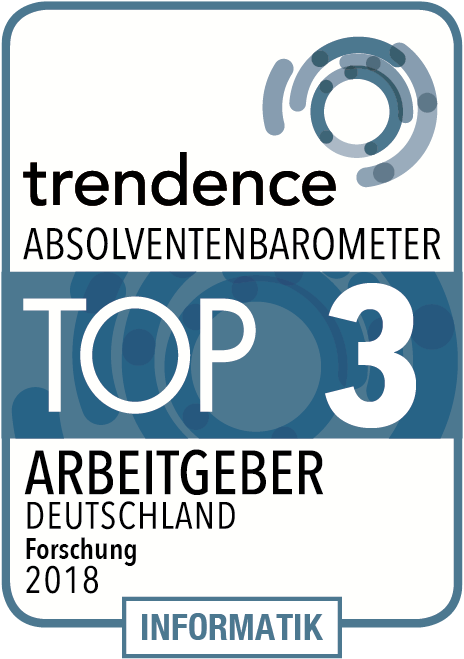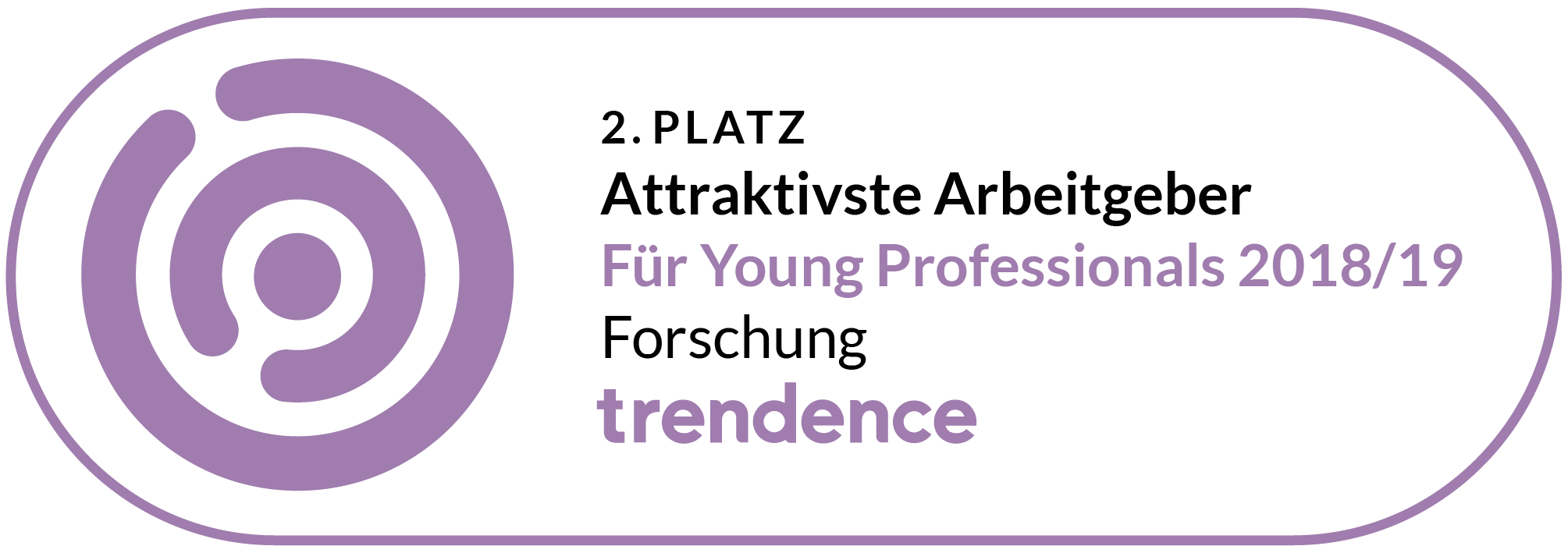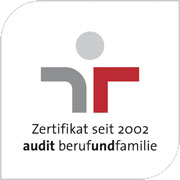Raumfahrt
Grenzen überschreiten im Weltraum für die Erde
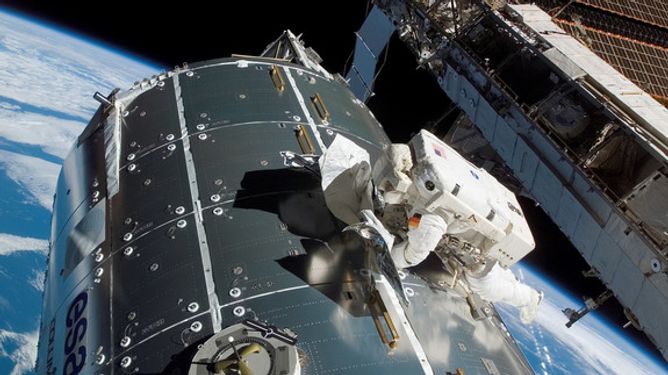
Weltraumforscher/in - Es gibt wohl keinen Beruf, der mehr fasziniert. Kaum einer bietet größere Chancen, echte Pionierarbeit zu leisten und den Lösungen für die großen Herausforderungen der Menschheit auf die Spur zu kommen. Und es gibt keine bessere Adresse, ihn auszuüben, als das DLR.
Wenn du als Ingenieur/in, Naturwissenschaftler/in oder Informatiker/in im Weltraum Neuland entdecken willst, hast du bei uns die Möglichkeit, an den Grenzen des Machbaren zu arbeiten – und zwar in allen Kernbereichen der Weltraumforschung.
Unsere Wissenschaftler/innen erkunden die Nachbarplaneten des Sonnensystems und erweitern mit ihrer Arbeit kontinuierlich die Grenzen der Weltraumforschung. Sie beobachten die Erde und ihre Ökosysteme aus dem All, um Veränderungen von Landoberflächen, Meeren und Atmosphäre zu erkennen und Maßnahmen zum Schutz von Umwelt und Klima zu entwickeln. Sie treiben die Möglichkeiten satellitengestützter Kommunikation und Navigation voran. Sie betreiben medizinische, biologische, physikalische und technologische Forschung unter Weltraumbedingungen z. B. in der internationalen Raumstation ISS, in Höhenforschungsraketen oder mit Parabelflügen. Und natürlich sind sie führend in der Entwicklung der anspruchsvollen Hochtechnologien, die all das erst möglich machen, etwa für Trägerraketen, Satelliten und Raumsonden sowie in der Raumfahrtrobotik.
Unsere Wissenschaftler/innen arbeiten in Kooperation mit internationalen Partnern wie ESA und NASA an den spannendsten Raumfahrtmissionen und Forschungsprojekten unserer Zeit. Von Columbus bis TanDEM-X, von Galileo bis Mars Express, ISS, Rosseta, Cassini-Huygens und viele weitere – die Bandbreite der Missionen und Themen ist schier unerschöpflich.
Luftfahrt
Der Zukunft Flügel verleihen
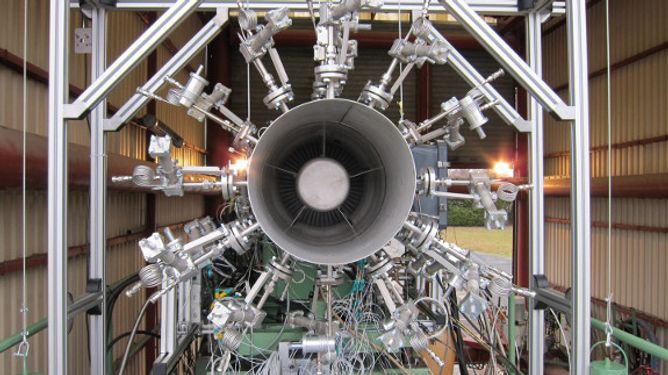
Du willst an der Entwicklung der Flugzeuge von morgen und übermorgen mitarbeiten? Alternative Technologien für die Flugzeugantriebe von heute erforschen? An der „Vernetzung des Himmels“ mitwirken? Mit satellitengestützten Präzisionsanflugverfahren für höhere Kapazitäten an Flughäfen sorgen? Oder vielleicht bewegt dich ein ganz anderes Luftfahrtthema?
Ganz gleich, wo in Sachen Luftfahrt Ihr Forscherherz schlägt – bei uns bist du richtig! Denn wir decken als einzige Organisation das gesamte Spektrum der Luftfahrtforschung in Europa ab.
Unsere Forscher/innen sind in vielen Bereichen Vordenker/innen der Luftfahrt. Sie arbeiten daran, bei einem stark wachsenden Flugverkehrsaufkommen gleichzeitig die Belastung von Mensch und Umwelt zu minimieren, Emissionen zu reduzieren, Ressourcen zu schonen und die Kosten des Luftverkehrs zu senken. Dafür haben sie alle Facetten des Gesamtsystems Luftfahrt im Visier. Das heißt in der Summe: Entwicklung zukunftweisender Flugzeugkonzepte, Entwicklung neuer und Optimierung vorhandener Technologien, aber auch Innovation in Flugführungsmanagement und Flughafenbetrieb.
Bei alldem arbeiten sie eng mit Partnern aus der internationalen Forschungsszene, mit der deutschen Flugsicherung sowie führenden Luftfahrtunternehmen zusammen. Ein ideales Umfeld für interdisziplinäre Teamplayer, die neue Wege gehen, um Mensch, Gesellschaft und Wirtschaft weiterzubringen. Möchtest du dazu gehören?
Dann werden dich nicht nur unsere spannenden Projekte begeistern, sondern auch unsere Forschungsanlagen – von Windkanälen, Triebwerks- und Brennkammerprüfständen bis hin zur größten zivilen Flotte von Forschungsflugzeugen in Europa.
Und wo sonst haben Sie die Aussicht, an der National Test Pilot School in den USA eine der begehrten Ausbildungen als Testpilot/in oder Flugversuchsingenieur/in zu absolvieren?
Verkehr
Visionen für die Mobilität von morgen

Stell dir eine Welt vor, in der Autos mit Ampeln kommunizieren, Abgase der Vergangenheit angehören, GPS-Systeme Verkehrsströme staufrei lenken, Züge 50% weniger Energie verbrauchen und deutlich schneller fahren, intelligente Fahrerassistenz-Systeme das Fahren bequem und absolut sicher machen.
Eine Vorstellung, die dich begeistert? Dann arbeite mit uns daran, sie wahr zu machen: Herzlich willkommen im DLR-Forschungsbereich Verkehr.
Unsere Wissenschaftlerinnen und Wissenschaftler entwickeln in zukunftweisenden Projekten Visionen und innovative Lösungen für die Mobilität von morgen. Dabei haben wir das Gesamtverkehrssystem mit all seinen Wechselwirkungen im Visier. Und wir erschließen unser Know-how aus Luftfahrt, Raumfahrt und Energie für bahnbrechende Anwendungen im Verkehr in unseren drei programmatischen Forschungsgebieten:
- Verbesserung bodengebundener Fahrzeuge
- Optimierung von Verkehrsströmen durch innovatives Verkehrsmanagement
- Verkehrssystem, Verkehrsentwicklung und Umwelt
Unterstütze uns bei der Entwicklung von Autos und Zügen der nächsten Generation – mit geringerem Energieverbrauch, leichteren Strukturen, optimierter Aerodynamik, höherer Sicherheit, besserem Komfort und weniger Lärm. Arbeite mit an Verkehrsmanagement-Systemen für Straße, Schiene und Flughäfen oder an Lösungen zur Unterstützung von Einsatzkräften bei Großereignissen und Katastrophen. Bringe dein Verständnis für komplexe Systeme in die integrale Betrachtung von Verkehrsentwicklung und Umweltwirkung ein. Oder gehe neue Wege bei der Untersuchung des Verkehrssystems.
Energie
Saubere, nachhaltige und bezahlbare Energie für Mensch und Wirtschaft – im Zeichen des Klimawandels und knapper Ressourcen eine der größten globalen Herausforderungen. Die Wissenschaftler/innen im Forschungsbereich Energie arbeiten mit Hochdruck daran. Von der Grundlagenforschung bis zu marktreifen Innovationen.
Wenn du mit deiner Energie und deinem Talent Grundlegendes bewegen willst, bist du hier genau richtig.
Denn wir konzentrieren uns auf Energie-Themen, in denen wir als Pioniere einzigartige Expertise haben und durch Synergien mit unserer Luft- und Raumfahrt-Forschung die größten Beiträge leisten können. So nutzen wir u. a. Kompetenzen aus der Luftfahrttechnik zur Optimierung von Windkraftanlagen. Unsere Forscher/innen sind führend in der Weiterentwicklung der Gasturbinentechnologie, die beim Übergang zu einem nachhaltigen Energiesystem eine Schlüsselrolle spielen wird. Richtungweisende Forschung wird auch auf den Gebieten Verbrennungstechnik, alternative Brennstoffe, Wasserstofferzeugung, Brennstoffzellen und Speichermedien betrieben. Ein zentraler Schwerpunkt: Solarforschung. Schon in den 70er Jahren haben wir mit dem Aufbau eines solarthermischen Versuchskraftwerks begonnen, das sich seitdem zum weltgrößten Testzentrum für solarthermische Kraftwerkskomponenten entwickelt hat. Heute hat das DLR bei der Entwicklung solarthermischer Kraftwerke weltweit eine Spitzenstellung und die Expertise unserer Wissenschaftler/innen ist international gefragt – von Desertec bis zum Solarkonzept für den Staat Katar.
Wenn Energie dein Thema ist, ist jetzt genau der richtige Zeitpunkt für Deinen Einstieg bei uns. Denn der weitere Ausbau unserer Forschungsfelder und große Investitionen in unsere Forschungsinfrastrukturen bieten optimale Entwicklungsperspektiven.
Sicherheit
Sicherheit ist dir wichtig? Uns auch! Du kannst in interdisziplinären Projekten arbeiten und das in über 30 DLR-Institute. Dort entstehen Beiträge zur Entwicklung, Erprobung und Bewertung von sicherheits- und verteidigungsrelevanten Technologien. Darunter befinden sich auch die vier eigenen Institute der DLR-Sicherheitsforschung: das Institut für den Schutz maritimer Infrastrukturen, das Institut für den Schutz terrestrischer Infrastrukturen, das Institut für Technische Physik sowie die Einrichtung Kompetenzzentrum für Reaktionsschnelle Satellitenverbringung (RSC3). Dabei verfügen wir über eine umfassende „End-to-End“ Systemkompetenz für weltraum- und luftgestützte Plattformen sowie über Fähigkeiten in der Sensorik, Erdfernerkundung oder Kommunikation.
Mit Satelliten und Kontroll- und Datenempfangsinfrastrukturen sowie zahlreichen Forschungsflugzeugen, verschiedenen Aufnahme- und Auswerteverfahren und speziellen Simulationsumgebungen leistet das DLR einen Beitrag zu folgenden Themenbereichen:
- Schutz und Überwachung kritischer Infrastrukturen
- Krisen- und Katastrophenmanagement
- Grenzsicherheit
- Schutz vor Terrorismus und organisierter Kriminalität
Die strategische Ausrichtung des DLR-Querschnittsbereichs Sicherheit erfolgt vor dem Hintergrund einer zukünftigen gemeinsamen europäischen Sicherheits- und Verteidigungspolitik und berücksichtigt auch die auf internationaler Ebene definierten Fähigkeitsprofile zum Schutz der Bevölkerung und zur Sicherung des Friedens. Na? Neugierig geworden, dann werde ein Teil unseres Teams und mache mit uns die Welt jeden Tag ein wenig sicherer.
